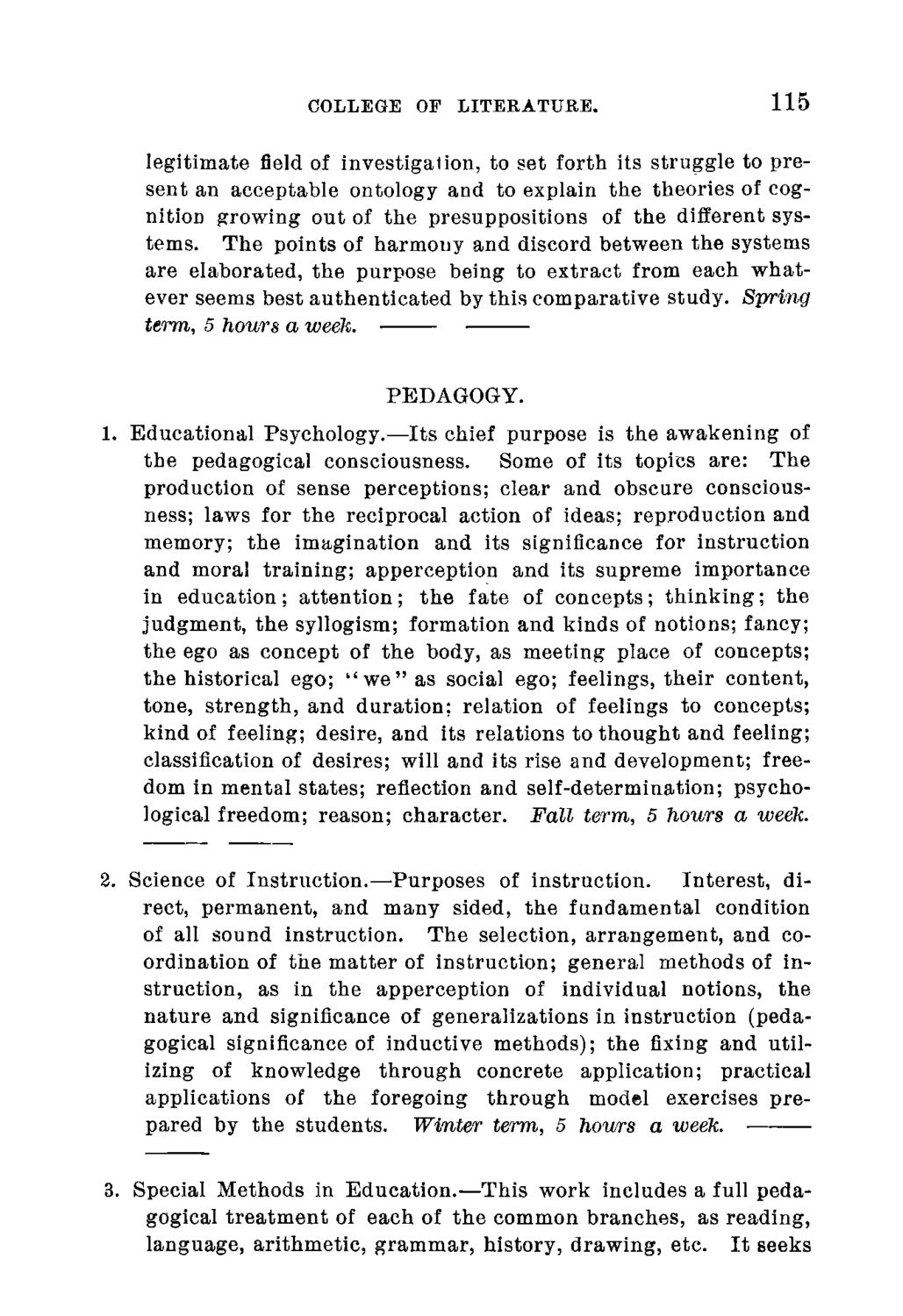| |
| |
Caption: Course Catalog - 1891-1892
This is a reduced-resolution page image for fast online browsing.

EXTRACTED TEXT FROM PAGE:
COLLEGE OP LITERATURE. 115 legitimate field of investigalion, to set forth its struggle to present an acceptable ontology and to explain the theories of cognitiOD growing out of the presuppositions of the different systems. The points of harmony and discord between the systems are elaborated, the purpose being to extract from each whatever seems best authenticated by this comparative study. Spring term, 5 hours a week. PEDAGOGY. 1. Educational Psychology.—Its chief purpose is the awakening of the pedagogical consciousness. Some of its topics are: The production of sense perceptions; clear and obscure consciousness; laws for the reciprocal action of ideas; reproduction and memory; the imagination and its significance for instruction and moral training; apperception and its supreme importance in education; attention; the fate of concepts; thinking; the judgment, the syllogism; formation and kinds of notions; fancy; the ego as concept of the body, as meeting place of concepts; the historical ego; " w e " as social ego; feelings, their content, tone, strength, and duration; relation of feelings to concepts; kind of feeling; desire, and its relations to thought and feeling; classification of desires; will and its rise and development; freedom in mental states; reflection and self-determination; psychological freedom; reason; character. Fall term, 5 hours a week. 2. Science of Instruction.—Purposes of instruction. Interest, direct, permanent, and many sided, the fundamental condition of all sound instruction. The selection, arrangement, and coordination of the matter of instruction; general methods of instruction, as in the apperception of individual notions, the nature and significance of generalizations in instruction (pedagogical significance of inductive methods); the fixing and utilizing of knowledge through concrete application; practical applications of the foregoing through model exercises prepared by the students. Winter term, 5 hours a week. 3. Special Methods in Education.—This work includes a full pedagogical treatment of each of the common branches, as reading, language, arithmetic, grammar, history, drawing, etc. It seeks
| |